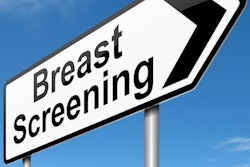Incentives in the U.S. Centers for Medicare and Medicaid Services (CMS) Accountable Care Organization Shared Savings Program (ACO SSP) may markedly affect cost, quality, utilization, and technological investment for radiology practices, according to a study from the Harvey L. Neiman Health Policy Institute.
The research team from Neiman and Virginia Polytechnic Institute and State University developed a mathematical model to analyze and improve the Medicare Shared Savings Program for ACOs, focusing on the use of CT scans. They found that provider participation in ACOs occurs at very different cost benchmarks and that physician provider shares vary according to cost benchmarks set between payors and ACOs.
The dynamic relationship between these provider shares and the cost threshold has important implications for utilization and patient health, and ACO participation reduces the likelihood that hospitals will invest in new technology, according to senior author Danny Hughes, PhD, senior director for health policy research and senior research fellow at Neiman.
They shared their findings in an article published online September 1 in Health Care Management Science. While their research considers only ACO SSPs, the authors noted that it's likely many of their results also apply to radiology practices under other alternative payment model (APM) arrangements.
"Perhaps, as others have said, the unintended consequences of these programs are related to the volume of APM programs available -- causing providers to question these programs' permanence and not really change their behaviors," Hughes said in a statement. "However, it's always possible, as we learn from ACO SSPs, that at least some of these consequences may be built into the program's incentive structures themselves."



















